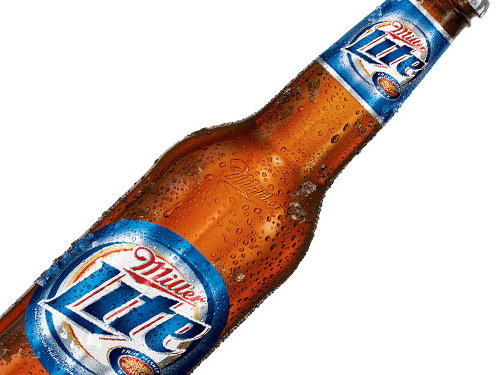After deliberating for more than six months on such burning topics as whether it is OK to iron blue jeans (no), put fruit in beer (no), to clink the tops or bottoms of bottles when toasting (bottoms) and how long to wait before dating a buddy's ex-girlfriend (six months), the "Men of the Square Table" discovered the one "Man Law" that trumps them all:
Soft sales kill advertising campaigns; even popular ones.
In case you missed the announcement last week, Miller Brewing Co. has suspended the "Man Law" series, which featured actor Burt Reynolds, football figures like Jerome Bettis, Jimmy Johnson and Jim Kelly, rodeo champ Ty Murray, boxer Oscar de la Hoya and wrestler Triple H.
Executives cited unimpressive sales numbers for their decision. Though Lite sales grew 1.5% in the final quarter, they had declined in most of the four previous months.
Although Miller officials hinted that the Square Table Tribunal could reconvene next football season, that prospect seems unlikely for one obvious reason. If it didn't work the first time, why would they try again?
That begs the question: why didn't it work?
While some may call the "Man Law" spots trivial (what beer commercials aren't?) and quibble with the amount of plastic surgery undergone by Reynolds, the Lite ads seemed to strike a similar chord with viewers as the "Tastes Great, Less Filling" campaign that buoyed the brand in the 1970s and ‘80s and was succeeded by things like the "Dick" campaign (sort of surreal spots supposedly made by a guy -- Dick -- with a bad yearbook picture) and the "Catfight" ads of three years ago in which hot models came to blows after the "Tastes Great, Less Filling" argument.
Marketing experts are always talking about creating "buzz," and having their taglines become part of popular culture. Based on more than 100,000 entries to the online "Manlawpedia," an interactive Web portal tied to the campaign, the Men of the Square Table were a success.
"I think the spots were very entertaining," said Joel Mitchell, a creative director at Glendale-based BVK. "There were a few times that I was out and I heard people talking and somebody would say ‘That should be a Man Law.'"
That was the intent of the ad series, which was created by Miami-based Crispin, Porter & Bogusky.
"With something like that, you want the consumer to interact with the brand and then refine it and create kind of a social currency," Mitchell said. "(The Man Laws campaign) was catching on. The problem is that in the beer world, if the distributors and marketers don't feel like they can translate yesterday's commercial into today's sales, they're going to pressure for a change.
"It's like that in franchise businesses, too, like McDonald's and Taco Bell. No matter how much people may like a spot, if the companies don't believe it's generating sales they'll get rid of it. It's not that the commercial wasn't doing the job. It's a feeling of ‘Maybe we can do better.' That's the reality. That's where the rubber meets the road."
Reports of the change last week indicated that Miller executives want to focus on the differences that set Lite apart from its competitors. New spots began airing recently that point out the fact that Lite is the only light beer in the market that doesn't use the "g-h-t" spelling. Future spots will likely focus on taste and other differences.
Mitchell said the Man Law commercials were somewhat "soft" in that they didn't drive home to consumers a reason to buy the product.
"Beer advertising is very image-y; It's more about having a good time," Mitchell said. "When you get right down to it, beer advertising is about being associated with the brand. The impetus for sales was not strong enough."
Miller's decision to shelve the Man Laws campaign came right before Super Bowl XLI, a time of year when commercials step into the spotlight and companies and ad agencies can make or break their reputations with 30-second spots that cost upwards of $2.5 million.
"If you spend $2.5 million, you don't want a spot that people talk about tomorrow and then it's over," Mitchell said. "Not only do you have to get everybody's attention in a competitive marketplace, you have to find a way for it to live on beyond that, through the Web or some other method. You want people to interact with the brand in the way they are being branded. You want it to last longer than just one day."
That sounds kind of like the "Man Laws" spots.
"I thought they were well done," Mitchell said. "You empathize with them because you it hurts when somebody does good work (and they aren't rewarded), but ultimately that's the reality of the business."
Host of “The Drew Olson Show,” which airs 1-3 p.m. weekdays on The Big 902. Sidekick on “The Mike Heller Show,” airing weekdays on The Big 920 and a statewide network including stations in Madison, Appleton and Wausau. Co-author of Bill Schroeder’s “If These Walls Could Talk: Milwaukee Brewers” on Triumph Books. Co-host of “Big 12 Sports Saturday,” which airs Saturdays during football season on WISN-12. Former senior editor at OnMilwaukee.com. Former reporter at the Milwaukee Journal Sentinel.





